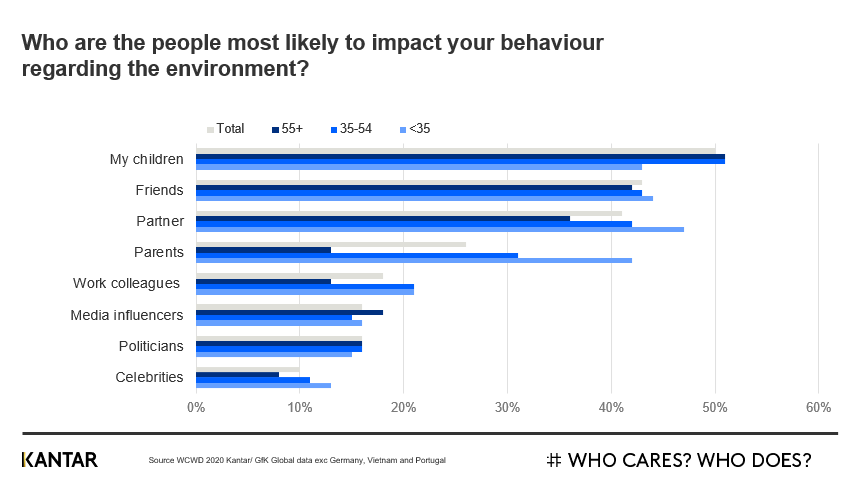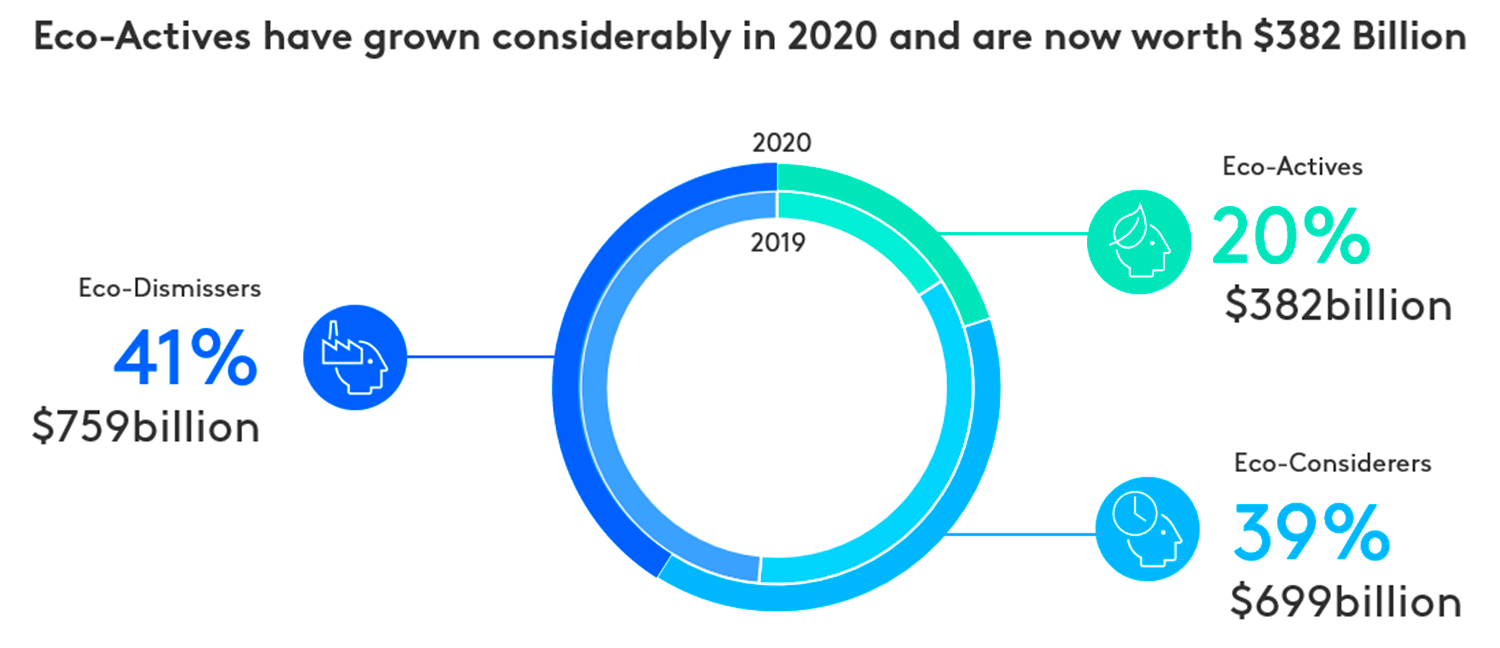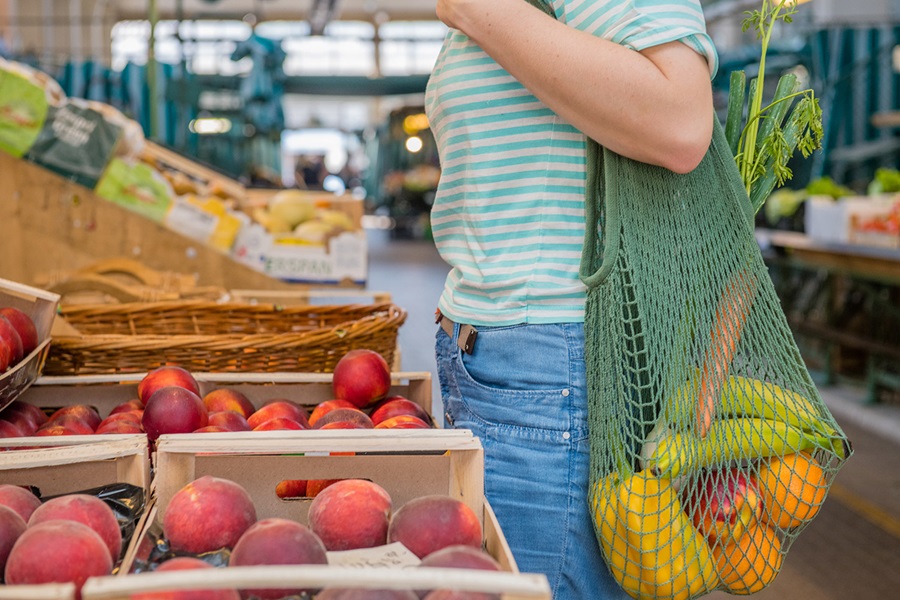Our new Who Cares, Who Does? study demonstrates green credentials are both beneficial to business and the planet.
With $1 in every $5 spent on fast moving consumer goods (FMCG) coming from an environmentally conscious consumer, investment in sustainable innovation will help brands win a growing Eco-Active consumer group.
As the COVID-19 pandemic continues to put a focus on the environment, we find:
- Plastic waste is the second biggest environmental concern in the world.
- Eco-Actives, the group we identify as consistently working to reduce their plastic waste, has grown in number from 16% to 20% of global shoppers since 2019.
- One in five shoppers say that since the pandemic began, they have acquired more environmentally friendly habits, and 16% are focusing on more environmental initiatives.
Our data continues to suggest that innovation to reduce plastic remains an opportunity. We’ve observed that shoppers are highly conscious of the packaging they buy weekly, and it is top of mind when they consider how they can personally reduce their environmental impact. While shoppers have been checking fewer aspects of food during the COVID-19 pandemic, “ recycled pack” (+4% points) and “quality assurance” (+3% points) labels are being checked more than before, demonstrating the demand for a green alternative to waste plastic.
Environmental concern is personal
The survey of 80,000 consumers across 19 countries finds nearly half (46%) feel personally affected by environmental problems, however, it is other people rather than brand or media influencers encouraging them to be greener. 38% feel that those whose opinions are important to them are driving them to change, with children the most likely (50%) to impact behaviour towards the environment followed by friends (43%) and partners (41%).

Gaps still remain between caring and doing when it comes to supporting green initiatives; 87.5% say buying products with reduced packaging is important to them, but just 20% are segmented as Eco-Actives, taking regular day-to-day actions to reduce their packaging waste.

We see Eco-Actives favouring products that are natural, or have health benefits, so winning their $382 billion wallet in will require brands to appeal to consumers’ lifestyles. 37% see manufacturers as the most important stakeholder to limit environmental damage (retailers were considered the least important at 4.2%), but just 22% of the population can name a manufacturer doing a good job when it comes to sustainable initiatives.
For brand owners, the study highlights the need to consider what the green shopper sees on the shelf and how truly reusable or recyclable that material is.
Watch the webinar
About Who Cares, Who Does
The report is based on the results of a survey covering more than 80,000 respondents from 19 countries across Europe, Latam, US and Asia, and explores how manufacturers and retailers look to meet their environmental commitments and bring more consumers with them. Who Cares, Who Does is a global survey in partnership with GfK and Europanel on Kantar’s household purchase panels. Countries that are covered: US, France, Germany, Great Britain, Italy, Spain, Portugal, Ireland, Czech Republic, Poland, Slovakia, China, Indonesia, Vietnam, Argentina, Brazil, Costa Rica, Chile, Colombia, Mexico, Peru.

